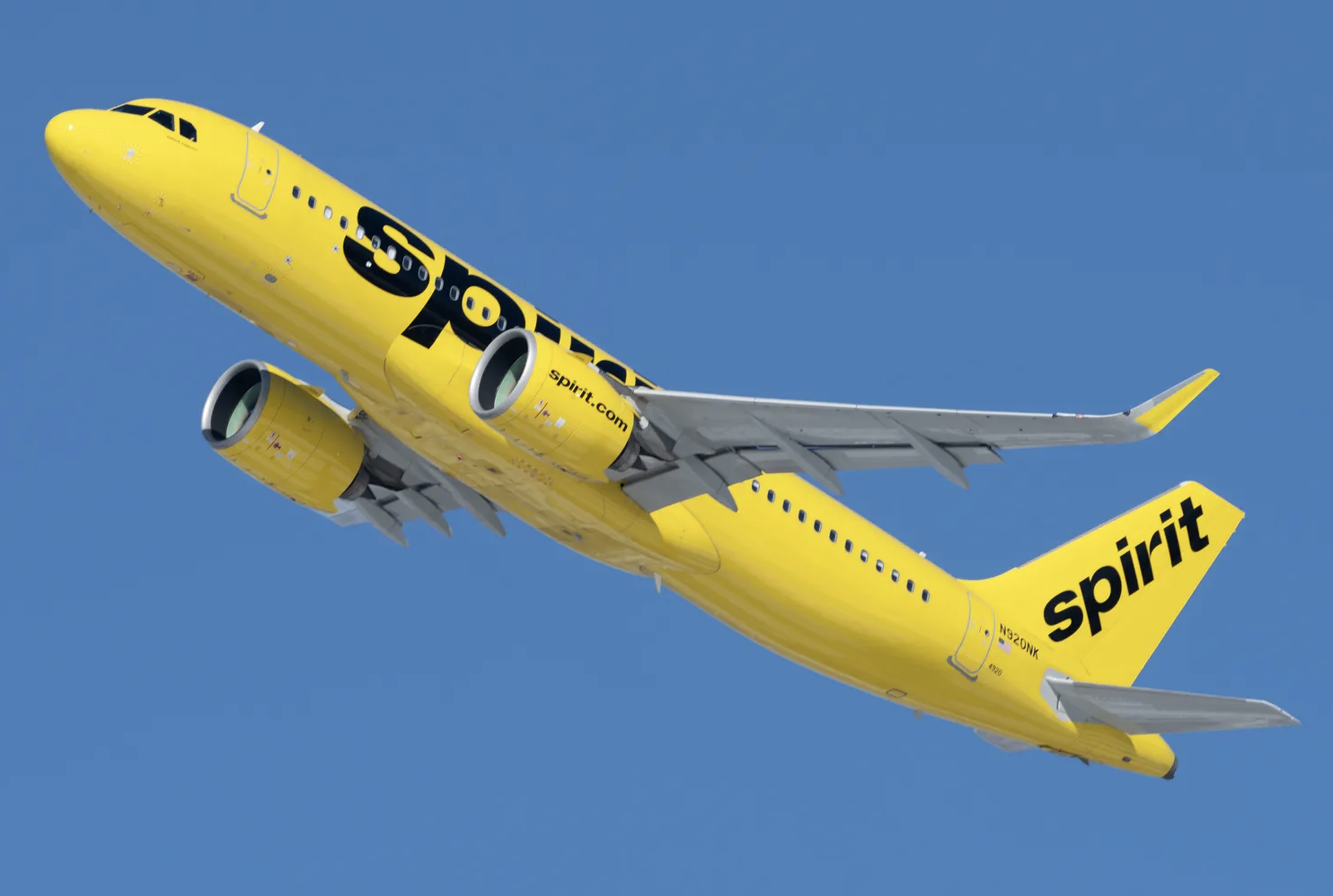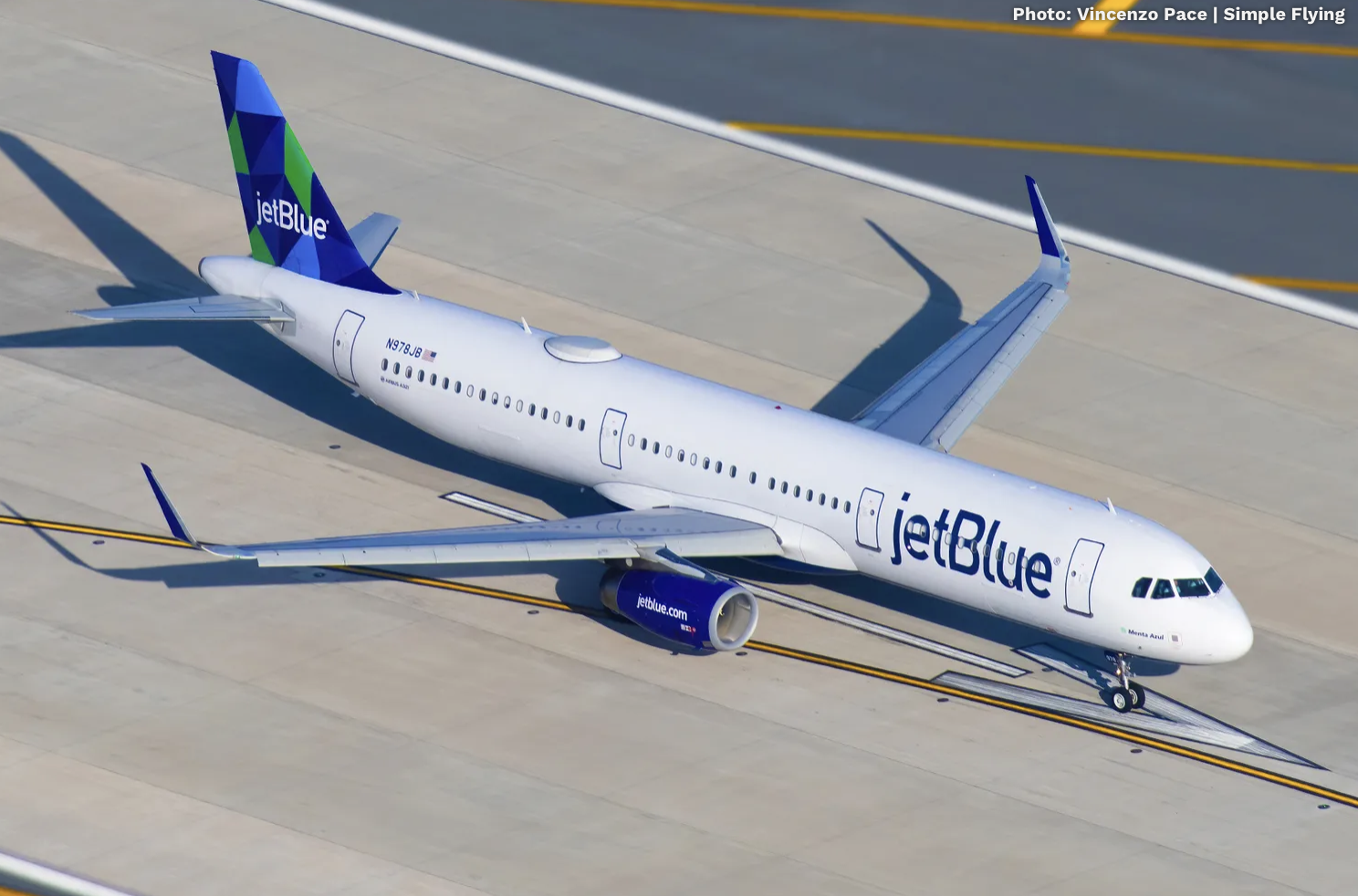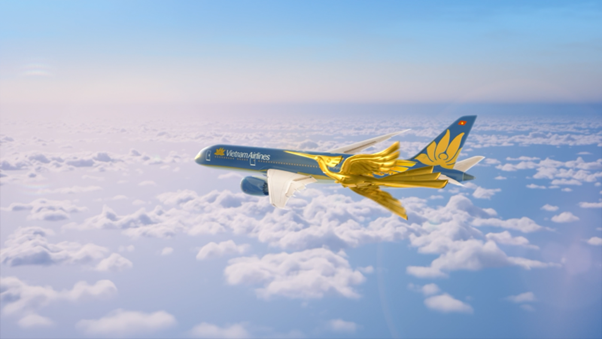Following last night’s unexpected withdrawal of Spirit Airlines from the proposed merger with Frontier, JetBlue has wasted no time in solidifying its position in relation to the low-cost carrier. Announced today, New York’s Hometown Airline has confirmed it will merge with Spirit to create the fifth-largest airline in the United States.
The boards of directors of both airlines have approved a definitive merger agreement which will see JetBlue acquire Spirit for $33.50 per share in cash. This includes a prepayment of $2.50 per share once the Spirit stockholders approve the transaction. Altogether, the deal will see Spirit bought out for a grand total of $3.8 billion.
Robin Hayes, chief executive officer at JetBlue said,“We are excited to deliver this compelling combination that turbocharges our strategic growth, enabling JetBlue to bring our unique blend of low fares and exceptional service to more customers, on more routes.

“We look forward to welcoming Spirit’s outstanding Team Members to JetBlue and together creating a customer-centric, fifth-largest carrier in the United States. Spirit and JetBlue will continue to advance our shared goal of disrupting the industry to bring down fares from the Big Four airlines. This combination is an exciting opportunity to diversify and expand our network, add jobs and new possibilities for Crewmembers, and expand our platform for profitable growth.”
If the partnership goes ahead, JetBlue has said it will bring its experience to all aircraft, indicating that it plans to refit every one of Spirits airplanes with the typical JetBlue fare.
The 5th largest US airline
JetBlue says that the merger will boost the value of the newly combined entity to $7.6 billion, accounting for an adjusted debt of $3.8 billion and operating leases of $2 billion. Most importantly, it will create an airline with a total fleet size of 458 airplanes, overtaking the likes of Turkish Airlines and Air China to become the world’s 8th largest carrier by fleet size.
In the United States, it will put the new JetBlue-Spirit in fifth place of the largest mainline carriers. American, Delta, United, and Southwest remain larger, and in the regional market, SkyWest does also fly more planes. But for the two airlines, the new scale of operations possible through this merger will put them in a very strong position for the future.
In particular, the acquisition will give JetBlue a new, strong presence in key leisure markets, including Fort Lauderdale, Orlando, San Juan, and Los Angeles. It will also increase its position in some of the key hubs of the ‘big four’ airlines, including Dallas, Las Vegas, Atlanta, and Chicago.

What’s next for Spirit and JetBlue?
While the announcement today confirms that Spirit intends to press ahead with JetBlue’s approach, there is still a great deal to be done before the partnership is eventually complete. Customary closing conditions such as regulatory approval and the approval of Spirit stockholders still need to be secured, and all that will take time.
The two companies expect that the regulatory process will be concluded no later than the first half of 2024. Hayes is hoping that the dominance of the US ‘big four’ airlines will quash any competition concerns that the regulators might have, as he commented,
“By enabling JetBlue to grow faster, we can go head-to-head with the legacies in more places to lower fares and improve service for everyone. Even combined with Spirit, JetBlue will still be significantly smaller than the Big Four, but we’ll be much better positioned to bring the proven JetBlue Effect to many more routes and locations.”
However, there is still the matter of the Northeast Alliance (NEA) – JetBlue’s tie-up with American Airlines in the New York and Boston areas. That is still subject to an antitrust lawsuit, which is set to go to trial in late September this year. JetBlue has said it will divest Spirit assets in any of the NEA airports, but it remains to be seen whether that will be enough for this proposed partnership to get the green light.
Cre: Simple Flying
Nguyen Mai Huong-COMM











